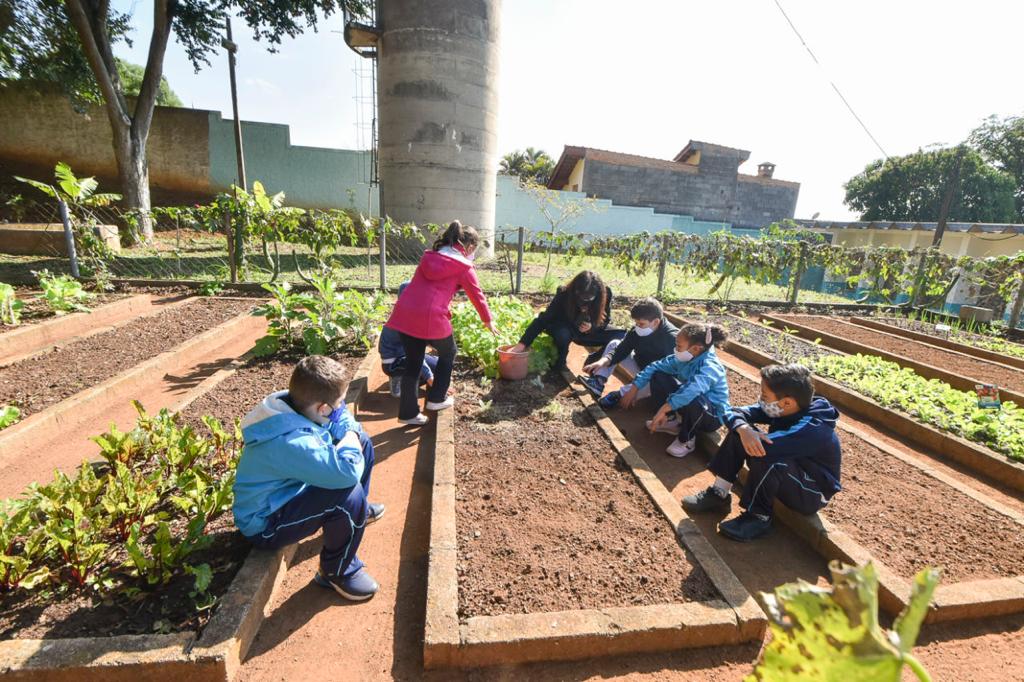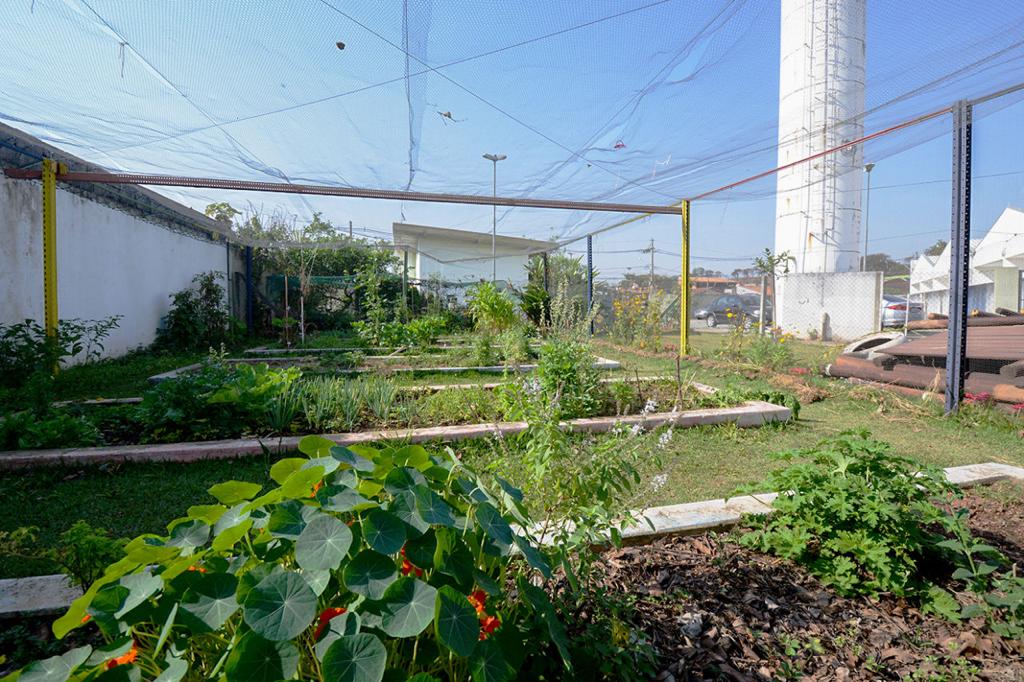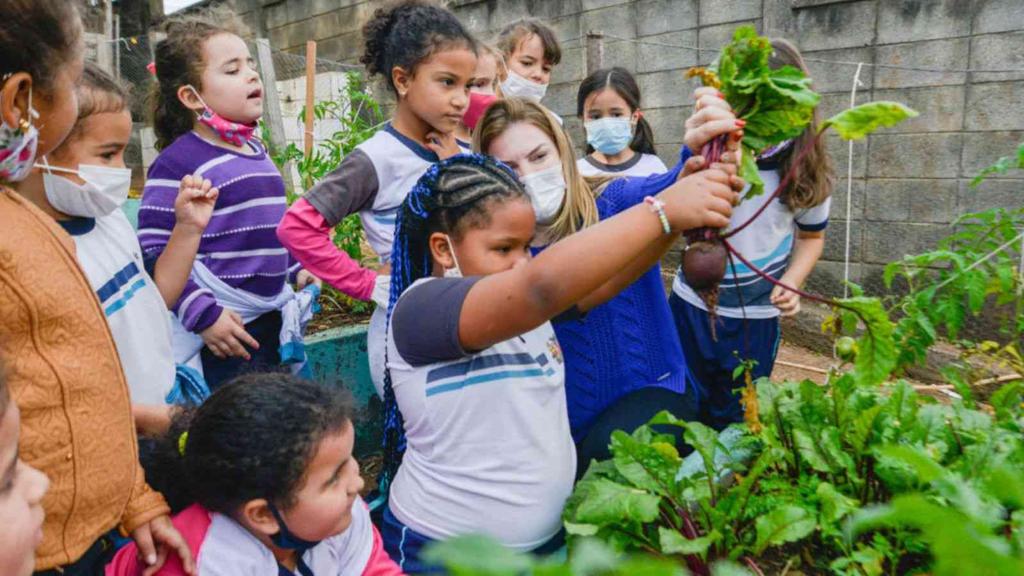Background
The city of Jundiai, with 430 thousand inhabitants, has been investing in school gardens since the beginning of 2000. The municipality counts on the Green Valley, which is an organic garden with 15 thousand square meters of cultivable area and about 80 varieties of products that supply municipal and state schools. In addition, planning and support actions are developed for school gardens and the promotion of healthy eating in the student population. The site also has a space of 4,500 square meters for Non-Conventional Food Plants (PANC by its Portuguese acronym), which are incorporated into the diet of students in the city.
It is important to highlight the interest of public managers in listening to technical professionals about the importance of the school garden methodology as a pedagogical tool and for the generation of healthy eating habits. In this sense, Innovate in the Garden project, in partnership with the Kairos Institute, sought to encourage the municipal schools of Jundiai to adopt and implement gardens. The project is one of the Educational Management Unit’s actions and offers virtual and classroom training, as well as support for the school teams, reaching more than 80 schools with gardens since its implementation in 2019.
Activities developed and methodology
The first step was to convince public managers of the project’s importance and raise their awareness. Subsequently, a qualified technical team was formed to carry out the project. Continuous training about school gardens is offered to school teams, formed by coordinators, cooks, educators, and people directly involved with the gardens. Topics range from starting a garden, including composting, establishing a PANC garden and its differences from the conventional one, and using the garden as a pedagogical tool, among other topics. Currently, about 30 varieties of PANC are already being worked in the city and offered in school meals for children’s education.
Institutions involved
Jundiai Educational Management Unit, Kairos Institute, Benedito Storani Technical School partnership of the Paula Souza Center (the host school in Green Valley).
Qualitative and quantitative data
- More than 30 species of PANC are offered in school canteens in Jundiai.
- More than 80 schools in Innovate in the Garden project.
- 63,000 public school students were served food from the Green Valley.
- 3,500 kindergarten students served.
- 8 hours of continuous training for school teams that are part of the Innovate in the Garden program.
Description of beneficiaries (number and audience)
- 63,000 public school students had food served from the Green Valley.
- 3,500 daycare students.
- 108 municipal schools and 39 public schools were involved.
- 15,000 square meters of arable area in Green Valley and more than 80 school gardens.
Results
- Introduction of PANC in school meals.
- Valuation of local and regional biodiversity.
- Improved eating habits of children and youth.
- Education of healthy eating habits.
- Rescue the relationship with nature.
- Concern for the environment – care, awareness, and others.
- Recognition of the farmer’s importance.
- Strengthen organic food production and consumption.
- Continuous training of professionals.
- Green Valley is certified by the International Organization for Agriculture (IOA).
Challenges and progress
- Challenges:
- Persuasion and enthusiasm of the school team because the educators are generally overworked and lack time for extracurricular activities.
- Maintenance of school gardens.
- Progress:
- Green Valley became an educational and receptive space for education training in the municipal network. It is possible to visit and learn more about food production in Jundiai.
- Re-education of eating habits.
- Encourage healthy generations with fruits and vegetable consumption, produced in the local environment, creating short circuits of production and consumption.
- School garden as a pedagogical tool for food and nutrition education.
- Strengthen organic food production.
- Inclusion of nutrition topics within the school curriculum.









